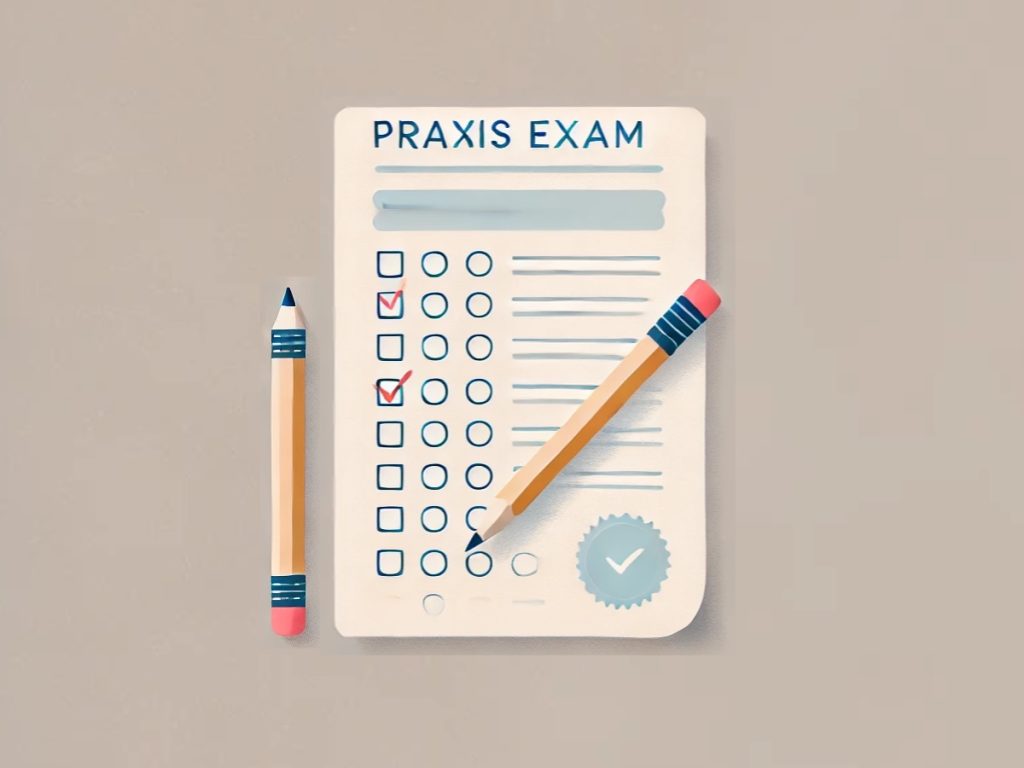How to Become a School Speech-Language Pathologist
The role of a speech pathologist at a school extends beyond speech treatment because these professionals function as educators who develop children’s ability to speak with clarity and confidence while maintaining joyful communication. The professionals address a wide spectrum of challenges including speech sounds and language development as well as social communication and literacy. Every child requires individualized support which makes the work of a school speech pathologist both deeply meaningful and professionally fulfilling.
The path to become a school speech-language pathologist requires specialized education and clinical training as well as exams and certification but leads to a highly rewarding career with progressive development at each stage. This article provides a detailed guide for students and career changers who want to become successful school-based SLPs.
Step 1 – Earn a SLP Bachelor’s Degree
The beginning of every speech pathology career requires obtaining a SLP bachelor’s degree. The four-year academic program creates fundamental knowledge which serves as the base for graduate education. The path to becoming a speech therapist does not require a specific major in communication sciences and disorders (CSD) although many students choose this field. Your undergraduate studies can lead to any academic field including psychology together with linguistics and English literature. The admission process for graduate programs accepts candidates from all academic backgrounds. Students who enter their master’s program without a CSD degree might need to take prerequisite courses known as “leveling” courses. The foundational subjects phonetics and language development and anatomy of speech/hearing and biology or psychology form the core of these required courses.
Selecting CSD as your undergraduate major or a related field will provide you with an easier transition to your future studies. Early exposure to human communication and disorders topics during your studies will both validate your career interest and provide useful professional experience. Students who pursue SLP graduate studies through non-CSD undergraduate majors will find acceptance since many students follow this path. A psychology graduate student would contribute valuable child development knowledge to their speech-language pathology training because of their existing expertise. You shouldn’t have any issues getting accepted to a graduate program if you achieve a good GPA and complete necessary prerequisite classes including linguistics and anatomy. During your college years you should look for opportunities to volunteer with children and people with disabilities. Observing a school speech pathologist or working voluntarily in special education classrooms helps you learn about the profession while enhancing your chances of getting into graduate school.
For those looking for a more flexible path toward a speech pathology bachelor’s degree, it may be worth looking into the different online degrees that are available both in and outside of your home state. Online SLP degrees provide excellent opportunities for for those don’t have time to go in person to campus, and also for those who’s home state doesn’t off the preferred courses. Some of the most affordable degrees for speech pathology are found online as well.
Step 2 – Complete a Master’s Degree in Speech-Language Pathology
Your next educational step after completing your bachelor’s degree should be a speech-language pathology master’s degree which serves as the fundamental professional degree needed for practice. SLP master’s programs at US universities take two years to finish (five to six semesters) before graduation. The Council on Academic Accreditation (CAA) under the American Speech-Language-Hearing Association (ASHA) must accredit your chosen program. A graduate must finish their education at a CAA-accredited institution to obtain state licensure in most jurisdictions and earn the ASHA Certificate of Clinical Competence (CCC-SLP). The accreditation process guarantees that programs teach students the essential competencies needed to become proficient clinicians.
When you choose your graduate program seek institutions that provide detailed school-based training because you already know you want to work in educational settings. The University of Washington (UW) runs an Educational Speech-Language Pathology track which provides specialized training to work with children in educational environments. Students who enroll in this program learn about literacy as well as autism and special education through coursework while they gain practical experience in preschools and schools to develop skills for future school-based practice. Students who enroll in Vanderbilt University or Emerson College will receive thorough training which applies directly to school-based practice. The speech-language pathology program at Vanderbilt stands as one of the nation’s top programs and allows students to conduct research and participate in pediatric speech pathology practicum work and Emerson College delivers a master’s program that includes online study with a focus on clinical training for children. The selection of a program which includes school practicum and school-focused electives will provide you with early exposure to educational settings.
Graduate students will explore advanced knowledge about communication science along with its disorder aspects. Students will examine phonology alongside language disorders, stuttering, voice disorders, autism spectrum disorders and augmentative communication. A major portion of your time will be spent conducting clinical work under professional supervision. The American Speech-Language-Hearing Association requires graduate students to obtain at least 400 hours of clinical experience under supervision. The supervised clinical experience requires 25 hours of observation guidance and 375 hours of hands-on client interaction across multiple patient age ranges and communication disorders. During your time in a master’s program you earn your required clinical experience hours through campus-based clinics and outside internships. You will evaluate and provide therapy to adults with neurological disorders during one semester and provide services to elementary school children during the next semester. You need to prove mastery of clinical competencies across speech sounds, fluency, voice, language, cognition swallowing, hearing, social communication, and communication modalities – the “Big Nine” areas of SLP practice.
Step 3 – Gain Supervised Clinical Experience
Your professional experience starts after completing your master’s degree through a Clinical Fellowship (CF). Your “residency year” begins when you start working full-time (usually 36 weeks or 1,260 hours) under the guidance of an experienced speech-language pathologist who holds ASHA certification. The fellowship serves as a critical link between academic theory and practical professional work.
Your Clinical Fellowship will be your opportunity to practice your skills directly in educational settings including schools and early intervention programs. Your responsibilities will expand during your training to include evaluation and IEP goal development as well as therapy delivery and educational and family collaboration. Your mentor will help you develop through regular observations and feedback which will lead you toward becoming an independent clinician.
The training you received during graduate school becomes tangible at this point. You will develop skills to modify your approaches for actual practice settings including managing school classroom therapy sessions in noisy conditions and finding creative ways to engage children who want to play outside. Your CF training will transform you from a supervised learner into a confident professional who achieves licensure, certification and starts a meaningful career as a school SLP.
Step 4 – Pass the Praxis Exam in Speech Pathology
The Praxis exam in Speech-Language Pathology from ETS serves as the required test for becoming a licensed speech pathologist. The test evaluates your graduate-level education by assessing your understanding of speech production alongside language disorders and assessment methods and intervention approaches.
The assessment contains 132 multiple-choice questions which you need to finish within 2.5 hours. The minimum required score for passing the exam is 162 which ranges from 100 to 200. The official study materials and practice tests from ETS will help you succeed in the Praxis exam which presents a challenging test experience. Students typically schedule their Praxis exam at the end of graduate studies or clinical fellowship when academic material remains fresh.
Most students achieve success on their first attempt at the Praxis exam when they prepare thoroughly and feel confident. The Praxis exam represents an essential milestone which advances you toward licensure and certification before you can start your fulfilling school-based speech-language pathology career.
Step 5 – Obtain Speech Pathology Licensure and Certification
Your professional credentials are now available since you have finished your master’s degree and clinical fellowship and passed the Praxis score. Two essential qualifications for your career are the state license and the ASHA Certificate of Clinical Competence (CCC-SLP).
A state license serves as the legal requirement for speech-language pathologists to practice their profession. Each state has different requirements for licensure but most need degree completion and Praxis scores and fellowship documentation and background checks. You must submit your application through the licensing board of your state.
The CCC-SLP certification from ASHA holds no legal requirement but school districts along with other employers strongly prefer candidates who hold this SLP certification. The certification process from ASHA requires you to demonstrate national standards compliance which leads to increased professional credibility and potential salary benefits. The process to obtain this certification requires you to send documentation to ASHA that includes verification from your graduate program and fellowship supervisor.
The process of maintaining your state license and CCC-SLP includes periodic renewal and continuing education which coincides with your school district’s professional development requirements. Having both credentials enables you to practice speech-language pathology across different states when you move and it enhances your professional flexibility and career opportunities.
Step 6 – Earn Teaching or Education Credentials
Public school employment requires many states for speech-language pathologists to secure either educational credentials or teaching certification. The additional credential demonstrates your ability to understand school policies and work effectively with teachers and administrators. The specific requirements for this certification differ across states because SLPs in California schools demands a Speech-Language Pathology Services Credential, and New York Speech Pathologists in schools must maintain the Teacher of Students with Speech and Language Disabilities (TSSLD) certificate. The credential acquisition process typically requires applicants to finish educational coursework and submit applications and pass exams that focus on educational settings. After obtaining this credential you will receive official recognition as an essential educational team member which will boost your professional standing and create potential benefits for your school system salary and career progression.
Optional – Pursue a Speech Pathology Doctorate Degree or Specialization
The pursuit of a speech pathology doctorate degree is not mandatory for school SLP practice but it can help you develop advanced expertise or create more career possibilities. The clinical speech-language pathology doctorate (SLP-D) degree delivers advanced clinical training with leadership development which helps you move into positions that include mentoring new clinicians and leading district-wide programs and clinical expert roles. The research-focused Speech Pathology Ph.D. pathway leads to university teaching positions and original field research contributions and speech-language pathologist training responsibilities which enables you to shape the advancement of the profession.
Your skills as a school SLP will significantly improve when you obtain specialized speech pathology certifications in addition to your doctoral education. Specialization in Autism Spectrum Disorders (ASD) and Augmentative and Alternative Communication (AAC) enables you to provide effective support to students who require unique communication assistance. The IBCCES Autism Certificate and AB-AAC Specialty Certification provide professionals with essential training for Autism Spectrum Disorders and Augmentative and Alternative Communication.
The Board Certified Specialists in Stuttering, Cluttering, and Fluency Disorders (BCS-SCF) certification provides you with the skills to address direct student needs affecting classroom performance in Fluency (Stuttering) and Child Language and Literacy areas. The Bilingual Extension Institute at Teachers College, Columbia University provides training for serving bilingual or multicultural populations which enables you to effectively serve diverse school populations. These additional specializations create leadership opportunities while making you more marketable as a professional and lead to better student outcomes.
School Speech-Language Pathology Salary: How Much Can I Earn?
According to the U.S. Bureau of Labor Statistics (BLS), the national median salary for all SLPs was approximately $89,290 as of 2023. As you consider where you want to work, remember public school districts determine the salary range for school SLPs. The district salary scales will play a large part in the speech pathologist salary while work experience and CCC-SLP certification can also play a role.
The combination of summer programs and bilingual stipends and district leadership positions and specialist roles provides additional ways for professionals to increase their earnings. The BLS predicts that SLPs will experience 18% employment growth from 2023 to 2033 because of high demand in the field.
The most fulfilling aspect of working as a school speech pathologist turns out to be the daily impact of helping children develop their voices and succeed both academically and personally although compensation remains important.
Top Paying States for School SLP
| State | Annual Salary | ||
|---|---|---|---|
| Washington D.C. | $105,236 | ||
| California | $104,291 | ||
| New Jersey | $103,629 | ||
| Alaska | $102,967 | ||
| Massachusetts | $102,873 | ||
*According to Salary.com
School SLP Salary Distribution
| 25th Percentile | $72,500 | ||
| 50th Percentile | $86,518 | ||
| 75th Percentile | $106,500 | ||
| 90th Percentile | $116,000 | ||
*According to ZipRecruiter
Related Articles

Speech Pathologist vs Speech Therapist: What’s the Difference?
If you have ever been researching speech-language pathology careers and come across the words ‘speech pathologist’ and ‘speech therapist’, you might wonder if they are

What is the Praxis Exam for Speech Language Pathology?
If you are pursuing the position of a speech-language pathologist, then you may have heard of the Praxis exam from your professors, classmates, or even

What is the Speech-Language Pathology Interstate Compact?
If you are interested in pursuing a career in SLP and have been researching licensing requirements or are simply interested in learning more about SLP
